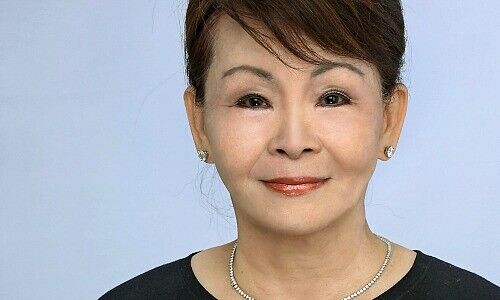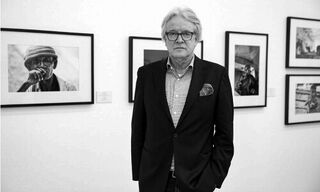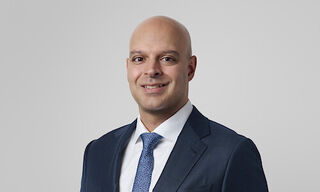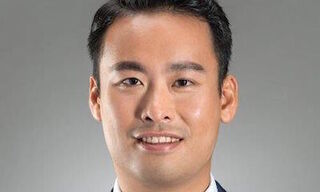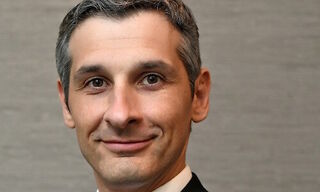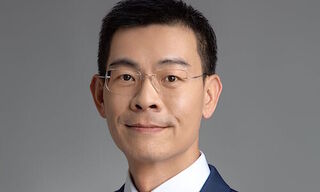As a generation of Asia’s affluent reach the point in their lives where they can retire and finally enjoy the fruits of their labor, they are faced with a considerable dilemma, Tammy Tsui writes in her article for finews.first.
This article is published on finews.first, a forum for authors specialized in economic and financial topics.
There is a well-known Chinese proverb 富不过三代, (Fu bu guo san dai), that translates to «wealth does not survive three generations». This proverb serves as a reminder to work hard, save prudently and build for the future, as well as a stark warning to those who might let the hard work of their ancestors spoil away into a riches-to-rags story.
Asia has been a focus for the global growth in wealth over the past two decades, thanks in part to the region’s flourishing economy and rapid infrastructure development. However, within any period of prolonged bounty, there inevitably lies the possibility of a bad harvest, as we are seeing now with the unprecedented coronavirus pandemic.
While the rest of the world rumbles on through the economic and market turmoil caused by the pandemic, many experts believe the upward trajectory in Asian wealth will continue. Already home to a quarter of the global billionaire population, the number of Asian billionaires is expected to increase by some 27 percent by 2023, making up more than a third of the share in the world.
«The wealthy in Asia are still young, without the ‹old money› heritage of Western Europe or North America»
The affluent and wealthy in Asia are still young, without the «old money» heritage of Western Europe or North America, and there is considerable potential for this wealth to grow even further. As a generation of Asia’s affluent reach the point in their lives where they can retire and finally enjoy the fruits of their labor, they are faced with a considerable dilemma. Namely on how to pass on the family business, and protect and preserve their wealth for the generations to come.
The size of the wealth and the complexities of multi-generational, cross-border family dynamics demand the highest level of expertise and experience. Among other things, managing wealth for Asia’s richest requires carefully structured, tailored solutions, that can only be found in partnership with experienced wealth planning and legal advisors, who operate under strict compliance and regulatory guidance. There may also be a need to address the issue of cross-border succession planning and mitigating family disputes.
«Asia’s wealthy are becoming increasingly global»
For many, this need can be filled by family offices. Long-established as best practice in managing dynastic wealth since the start of the 20th century, this trend is growing in Asia, steered by a new generation of wealth. In Singapore for instance, according to the Monetary Authority of Singapore, the total number of family offices quadrupled between 2016 and 2018.
A survey of wealthy Chinese families conducted by UBS and Campden Wealth, found that 64 percent use family office services, and of those that do not, 44 percent are considering establishing one. In India, 58 percent of families are interested in setting up or joining a family office, and 50 percent are currently in the process of doing so, according to a similar survey by Edelweiss and Campden Family Connect.
Like their global peers, Asia’s wealthy are becoming increasingly global, with their investments spread across multiple geographies and jurisdictions. Given the variations in tax regimes, managing these cross-border interests can be highly complex. These needs can, again, only be successfully administered by those with a track record in cross-border wealth structuring.
«Family offices play an integral role in continuing a legacy of wealth»
Many of Asia’s richest families face the challenge of passing down wealth to their second, third and subsequent generations without it eroding away. It is increasingly important for Asia’s family offices to evolve and expand oversight of family businesses. They will need to instill strong principles and core values in a younger generation, which may not have had to endure the tribulations of building that wealth. Family offices play an integral role in continuing a legacy of wealth and challenging the conventional wisdom of generational wealth.
Amid the dark clouds of COVID-19, there is a growing need for bespoke Asian wealth management services that are capable of managing diversified assets and leveraging their global network to help protect and preserve wealth, and prepare wealthy families for the role that their generation and beyond are set to play in shaping the future.
Tammy Tsui is the CEO for Asia, Lombard International. Working with a large network of asset managers, private and custodian banks, family offices and wealth advisers, she has an in-depth knowledge of the wealth and succession planning sector across all major wealth hubs in Asia. She has over 30 years’ experience in the high-net-worth wealth management industry. Previously she was the deputy chairman of Jardine Lloyd Thompson for Greater China. Prior to this, she led the AON Private Risk Division as Regional Managing Director. Before AON, she was the Transamerica general agent for the ultra-high-net-worth market in Asia.
Previous contributions: Rudi Bogni, Peter Kurer, Rolf Banz, Dieter Ruloff, Werner Vogt, Walter Wittmann, Alfred Mettler, Robert Holzach, Craig Murray, David Zollinger, Arthur Bolliger, Beat Kappeler, Chris Rowe, Stefan Gerlach, Marc Lussy, Nuno Fernandes, Richard Egger, Maurice Pedergnana, Marco Bargel, Steve Hanke, Urs Schoettli, Ursula Finsterwald, Stefan Kreuzkamp, Oliver Bussmann, Michael Benz, Albert Steck, Martin Dahinden, Thomas Fedier, Alfred Mettler, Brigitte Strebel, Mirjam Staub-Bisang, Nicolas Roth, Thorsten Polleit, Kim Iskyan, Stephen Dover, Denise Kenyon-Rouvinez, Christian Dreyer, Kinan Khadam-Al-Jame, Robert Hemmi, Anton Affentranger, Yves Mirabaud, Katharina Bart, Frédéric Papp, Hans-Martin Kraus, Gerard Guerdat, Mario Bassi, Stephen Thariyan, Dan Steinbock, Rino Borini, Bert Flossbach, Michael Hasenstab, Guido Schilling, Werner E. Rutsch, Dorte Bech Vizard, Adriano B. Lucatelli, Katharina Bart, Maya Bhandari, Jean Tirole, Hans Jakob Roth, Marco Martinelli, Thomas Sutter, Tom King, Werner Peyer, Thomas Kupfer, Peter Kurer, Arturo Bris, Frederic Papp, James Syme, Dennis Larsen, Bernd Kramer, Ralph Ebert, Armin Jans, Nicolas Roth, Hans Ulrich Jost, Patrick Hunger, Fabrizio Quirighetti, Claire Shaw, Peter Fanconi, Alex Wolf, Dan Steinbock, Patrick Scheurle, Sandro Occhilupo, Will Ballard, Nicholas Yeo, Claude-Alain Margelisch, Jean-François Hirschel, Jens Pongratz, Samuel Gerber, Philipp Weckherlin, Anne Richards, Antoni Trenchev, Benoit Barbereau, Pascal R. Bersier, Shaul Lifshitz, Klaus Breiner, Ana Botín, Martin Gilbert, Jesper Koll, Ingo Rauser, Carlo Capaul, Claude Baumann, Markus Winkler, Konrad Hummler, Thomas Steinemann, Christina Boeck, Guillaume Compeyron, Miro Zivkovic, Alexander F. Wagner, Eric Heymann, Christoph Sax, Felix Brem, Jochen Moebert, Jacques-Aurélien Marcireau, Ursula Finsterwald, Claudia Kraaz, Michel Longhini, Stefan Blum, Zsolt Kohalmi, Karin M. Klossek, Nicolas Ramelet, Søren Bjønness, Lamara von Albertini, Andreas Britt, Gilles Prince, Darren Willams, Salman Ahmed, Stephane Monier, and Peter van der Welle, Beat Wittmann, Ken Orchard, Christian Gast, Didier Saint-Georges, Jeffrey Bohn, Juergen Braunstein, Jeff Voegeli, Fiona Frick, Stefan Schneider, Matthias Hunn, Andreas Vetsch, Fabiana Fedeli, Marionna Wegenstein, Kim Fournais, Carole Millet, Ralph Ebert, Swetha Ramachandran, Brigitte Kaps, Thomas Stucki, Teodoro Cocca, Neil Shearing, Claude Baumann, Guy de Blonay, Tom Naratil, Oliver Berger, Robert Sharps, Tobias Mueller, Florian Wicki, Jean Keller, Fabrizio Pagani, Niels Lan Doky, Michael Welti, Karin M. Klossek, Ralph Ebert, Johnny El Hachem, Judith Basad, Katharina Bart, Thorsten Polleit, Beat Wittmann, Bernardo Brunschwiler, Peter Schmid, Karam Hinduja, Stuart Dunbar, Zsolt Kohalmi, Raphaël Surber, Santosh Brivio, Gérard Piasko, Mark Urquhart, Olivier Kessler, Bruno Capone, Peter Hody, Lars Jaeger, Andrew Isbester, Florin Baeriswyl, Michael Bornhaeusser, and Agnieszka Walorska.

